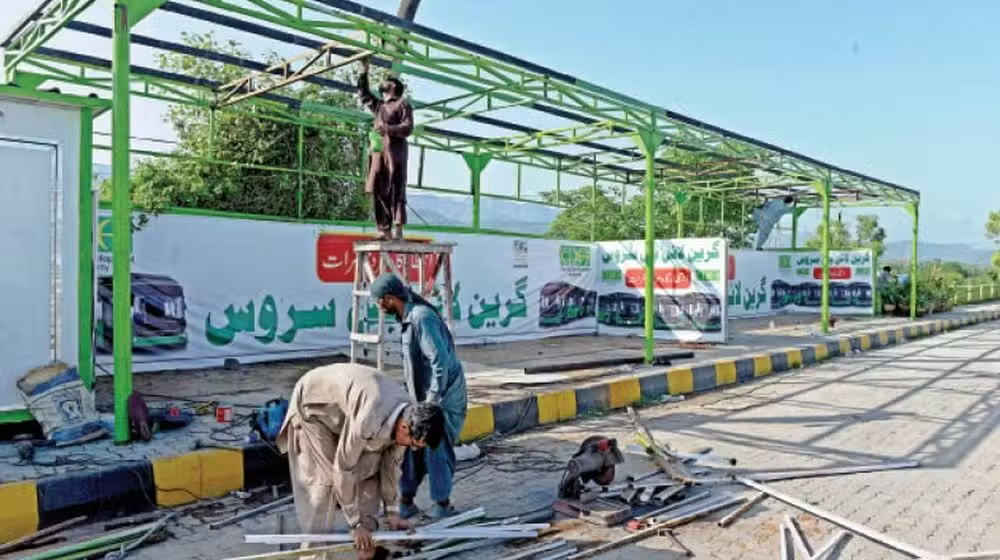The Punjab Transport Company (PTC) launched an ambitious pilot project aimed at enhancing commuter facilities at key bus stops in Lahore. The project, introduced two months ago, promised to alleviate the discomforts faced by daily travelers, particularly during the scorching summer months.
The plan included installation of electric fans, water coolers, and provision of basic vehicle services such as petrol refueling and puncture repair at selected pilot locations.
Missing Fans and Broken Water Coolers
The primary objective of the pilot was to ensure commuter comfort, particularly during summer, by installing electric fans and water coolers at strategic high-traffic bus stops including Jinnah Hospital, Mall Road, Jail Road, and Canal Road.
Unfortunately, local reports confirm that these locations now stand stripped of essential equipment. Electric fans have been stolen, and the water coolers are either out of order or completely dry, rendering the entire setup useless for the general public.
In addition to comfort facilities, the project also aimed to provide on-the-spot emergency support for commuters. This included petrol supply for stranded vehicles and puncture repair services—a first for Lahore’s public transport ecosystem.
Almost all selected bus stops lack any functional petrol or puncture services. According to regular commuters, these services were never made operational, indicating a lack of implementation and follow-through from day one.
There was no established maintenance protocol, no routine inspection, and no accountability for the condition of the installations. This absence of oversight turned what was a progressive initiative into a wasted public resource, with equipment either stolen or damaged beyond repair.
Lahore, known for its intense summer temperatures, experiences frequent heatwaves. With the facilities now defunct, commuters have no choice but to endure harsh weather conditions.
Implications for Future Projects and Urban Development
The collapse of this pilot scheme has jeopardized the credibility of not just the Punjab Transport Company but also of similar urban development projects in the future.
Stakeholders are questioning the planning process, the absence of feasibility studies, and the lack of transparency in execution. Smart city initiatives must be data-driven, secure, and adaptable to local socio-economic conditions.
Civic groups and political observers are demanding a full-scale audit of the pilot project. There is growing consensus that without transparent investigation and concrete accountability, future public projects will meet the same fate.
- Periodic equipment checks
- Local partnerships with vendors for quick maintenance
- Deployment of mobile service teams
- Feedback hotlines for commuter complaints
- Digital dashboards to monitor real-time functionality
While the failure of the pilot project is evident, it also serves as a critical learning opportunity. For Lahore to embrace smart, commuter-friendly infrastructure, public authorities must go beyond symbolic gestures and instead invest in sustainable, well-supervised, and community-driven solutions.


